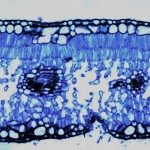Lien vers Pubmed [PMID] – 22691466
J. Food Prot. 2012 Jun;75(6):1004-11
The purpose of this study was to assess the risk of Vibrio spp. transmission from crustaceans to humans in two coastal towns of Côte d’Ivoire. Bacteriologic analysis was performed on 322 crustacean samples obtained from six markets in Abidjan and one in Dabou. Suspected Vibrio colonies were identified by morphological, cultural, biochemical, and molecular tests and matrix-assisted laser desorption ionization-time-of-flight mass spectrometry. PCR assays were used to further characterize Vibrio strains. A survey on consumption of crustaceans was conducted among 120 randomly selected households in Abidjan. Overall, Vibrio spp. were isolated from 7.8% of the crustacean samples studied, at levels as high as 6.3 log CFU/g. Of the Vibrio strains identified, 40% were V. alginolyticus, 36% were V. parahaemolyticus, and 24% were nontoxigenic V. cholerae; the latter two species can cause mild to severe forms of seafood-associated gastroenteritis. Among interviewed households, 11.7% reported daily consumption of crustaceans, confirming the high probability of exposure of human population to Vibrio spp., and 7.5% reported symptoms of food poisoning after consumption of crustaceans. The absence of genes encoding major virulence factors in the studied strains, i.e., cholera toxin (ctxA and ctxB) in V. cholerae and thermostable direct hemolysin (tdh) and thermostable direct hemolysin-related hemolysin (trh) in V. parahaemolyticus, does not exclude the possibility of exposure to pathogenic strains. However, human infections are not common because most households (96.7%) boil crustaceans, usually for at least 45 min (85.9% of households) before consumption.


